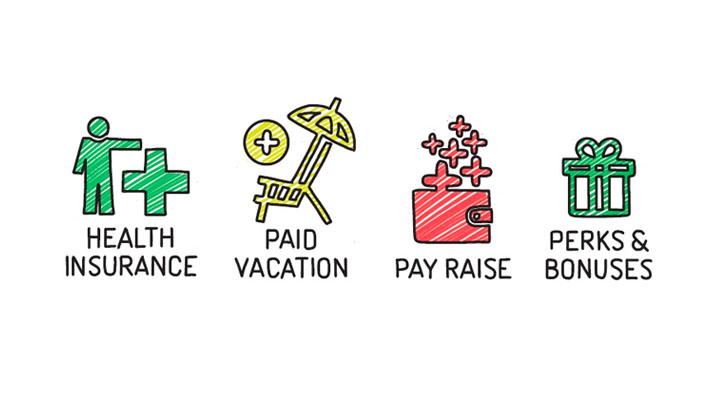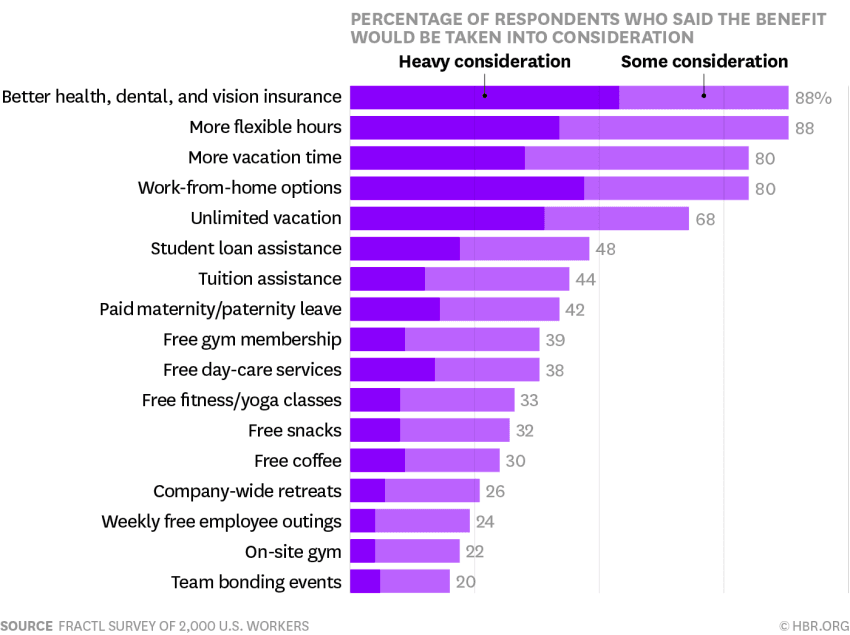A Software Developer's Guide to Negotiating Benefits During Interviews
If you aren't negotiating your job offer as a software engineer, you're doing it wrong. In this post we'll discuss what you need to do to get an instant salary raise.

As a software developer, you're lucky enough to possess one of the most in-demand skills in the current job market. For most industries a $100k salary is very well paid - for software engineers it's "average".
Not only does this mean you'll find no shortage of job openings, but it also means that you have quite a bit of leverage when negotiating offers. Negotiation for better benefits is an incredibly valuable skill to have as you put yourself on the market. Despite this, around 56% of workers don't attempt to negotiate when they receive a job offer—instead opting to accept or reject the offer at face value. When they do this, they're often leaving money (and time-off) on the table.
In this article, we're going to be covering the art of negotiating for the benefits that you think are important. Don't worry if asking a potential employer for a better deal sounds intimidating, you just need to learn how much your skills are worth!
1. Know what you're worth.
Before you can expect to receive a certain set of benefits, first figure out what your skills and experience are worth. Chances are that an employer will compensate you more if you possess some combination of:
- Relevant specializations (e.g., C++, Python)
- Leadership positions (e.g., former team lead, president of a club)
- A high GPA (3.5+/4-, depending on the school)
The higher these attributes that apply to you as an individual—the greater the market value is for your skill set; this means it'll be easier for you to negotiate. If you're lacking any one of these aforementioned attributes—don't worry! Keep reading, and we'll go over some less obvious factors that can work in your favor.
2. Think long-term.
If you're just starting out in the workplace, it's crucial to think about the big picture when trying to quantify your worth. Often young workers don't realize how valuable benefits are until they've been working for a couple of years and begin planning for their future (e.g., trying to save money on taxes, find financial security, or start a family).
As you start to think about benefits that you'd like to negotiate for, make sure you think long-term and consider benefits that will maintain or increase their value over time.
Here are some example:
- Flexible work hours
- Four-day work week
- Extra vacation days
- Work equipment e.g. laptop
- Performance bonuses e.g., monthly stipend for hitting personal goals
- Childcare assistance
- Student loan assistance
- Professional developerment budget e.g. "I want to learn X programming language, would you pay for training?"
Disclaimer: You'll probably need to demonstrate a high-level of value before you negotiate for some of these benefits (e.g., four-day work week). If you're an entry-level developer, make sure your expectations are realistic.
p.s. here are the most valued employee benefits:
Would you like a 4 day work week?
3. Sell yourself!
One of the best aspects of being a software developer is that your skills are highly malleable. This means there's almost always room for improvement and advancement. Let this fact work in your favor when going into an interview by considering what you can offer the company besides just coding ability.
This could be any number of things:
- Can you improve customer relations?
- Are you willing or able to teach others on your team certain languages/classes/methods?
- Do you have previous work experience or a strong academic background?
- Are you willing to take on more responsibility in the future (e.g., becoming a team lead)?
If yes, be sure to mention this during your interview—even if it's not guaranteed that you'll receive any of the benefits you're after! Most importantly, make sure that everything you say about yourself is honest and accurate—don't exaggerate anything because it could come back to bite you later.
4. Negotiate your job offer.
Now it's time for the actual negotiation. When you're making the job offer, try to hold off on any mention of benefits until you've already agreed upon a salary (even if it's just slightly higher than the initial offer). This way, you can play up how much additional value you'll provide to the company without having to worry about negotiating for something that they might view as trivial.
During the salary negotiations process, avoid saying things like "I want at least $75k" or "This is what I need to make ends meet". Instead, focus your negotiations on why you're worth more than what's listed in the initial job description—for example:
"The pay range for this position seems reasonable based on my past work experience and education; however, I'm looking for opportunities to advance my career. By demonstrating my worth in this role, I'm confident I'll be able to contribute much more value over the long-term."
Once you have your salary locked in, it's time to start negotiating for benefits. Here's how to go about it:
Ask For What You Want
- What benefits are most important to you?
- What are you hoping the interviewer or HR team will offer you?
- Is not getting these a dealbreaker?
There are some places where you don't want to be the first to give in—for example, you might not want to be the first one to throw out a number when discussing salary requirements. On the other hand, when it comes to the benefits you want, you should confidently—but not arrogantly—ask for what you want. Hiring managers can't read your mind!
Make Arguments In The Company's Best Interest
Remember that the goal isn't just to get more benefits for yourself. The ultimate goal is to be offered a job! When negotiating, think about what's best for both you and your potential future employer, and frame your arguments in a way that highlights the mutual benefits. For example, when asking for three days off per week rather than two days, you might point out that the company will have one less workday's worth of overhead expense!
Be Open To A Compromise
If the company doesn't have the budget to offer you exactly what you want, don't take it personally. Instead, focus on what they do have to offer and try to find a middle ground that somewhat meets your expectations without completely undercutting their own bottom line. For example: "I'm happy to work five days per week in exchange for an extra day off each month" or "I'm willing to make this change if we can agree upon a salary of $XYZ."
Understand The Company's Limits
All companies have certain constraints that hiring managers need to adhere to. The company may not have the ability to offer you everything you're asking for, and you need to be able to recognize when you're getting close to their limit. Sometimes, this limit will be below your standards—an indication that the company may not be a great fit. Other times, it may mean that you need to adjust your expectations.
That doesn't mean you have to give up the things you want entirely, but it may mean that you need to accept a lesser offer and demonstrate your value before renegotiating. Make sure you prioritize the things that are most important to you and work your way back from there.
Leave A Positive Impression
Taking the time to ask for things you want during an interview shows that you're willing to work hard to get what you deserve. Keep in mind, however, that it's not all about you. Companies are looking for candidates who will make their team better, but they also have a reputation to maintain. Always leave your interviewer with the impression that he or she is making the right choice by considering hiring you. This means leaving some of those pesky benefits negotiations on the table and coming across as humble instead of entitled.
5. Get what you deserve!
It's important to stay confident when negotiating for benefits because every company values an ambitious candidate who has specific goals regarding their career advancement. As a result, your willingness to take initiative can actually work in your favor if you know how to sell yourself properly.
Remember: it's okay to ask for what you want—just make sure there are no hidden motives or expectations attached! And also remind yourself how in-demand your skill set is - you are negotiating from a position of power!
Since this is still a painful process for most people, it might help to consider all of the alternatives first. Are there any other companies that have already expressed interest? Is there another position on the same team that would have better benefits? Would you rather just take the original offer and negotiate later on down the road instead?
Always ask yourself, "What are my other options?" before making a decision. If nothing else, this can be helpful when it comes time for your performance review because then you'll have an idea of what to emphasize in order to get the desired result!
Good luck with your job search! 🤜🤛 And for your next role, why not make it a 4-day week one?

